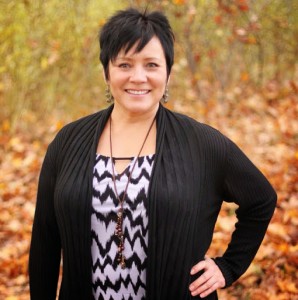The Board of the Canadian Mental Health Association, Thunder Bay Branch is pleased to announce the appointment of Ms. Sharon Pitawanakwat as the incoming Chief Executive Officer. 
“We are thrilled to have Sharon lead CMHA Thunder Bay,” said Michael Lewkin, Board Chair of CMHA Thunder Bay. “She has developed a solid track record of building relationships and partnerships, leading quality improvement initiatives, and facilitating organizational and community development initiatives.”
Pitawanakwat has been a resident of Thunder Bay since 1990, and brings 20 years of progressive management and leadership experience in the public and primary health, aboriginal health and mental health sectors, with 16 years direct senior leadership experience in not-for-profit organizations. Sharon has been the Director of Program Services with CMHA Thunder Bay Branch since January 2008. In January 2014, she began serving as Acting CEO upon the retirement of Maurice Fortin.
“I’m honoured to be given this opportunity and I look forward to continue working alongside the dedicated board members, staff and volunteers at CMHA Thunder Bay,” said Pitawanakwat. “Together we will work to achieve our vision of creating an inclusive community that promotes emotional well-being, human dignity and social justice and where people are valued and opportunities, in all aspects of life, are available to everyone.”
The announcement was broadcast on a local news television program. In the interview on TBT Newshour, Pitawanakwat said she intends to continue to build on the organization’s programs and to work with community partners across the region to develop a strong mental health and addictions system.
CMHA Thunder Bay aims to foster an inclusive community that promotes emotional well-being, human dignity and social justice where people are valued and opportunities in all aspects of life are available to everyone. It does this by offering a range of programs and services to support individual recovery and promote mental wellness within families and communities. Programs for youth and adults include support and rehabilitative activities, training workshops, housing support, family education, case management, crisis and early psychosis intervention.